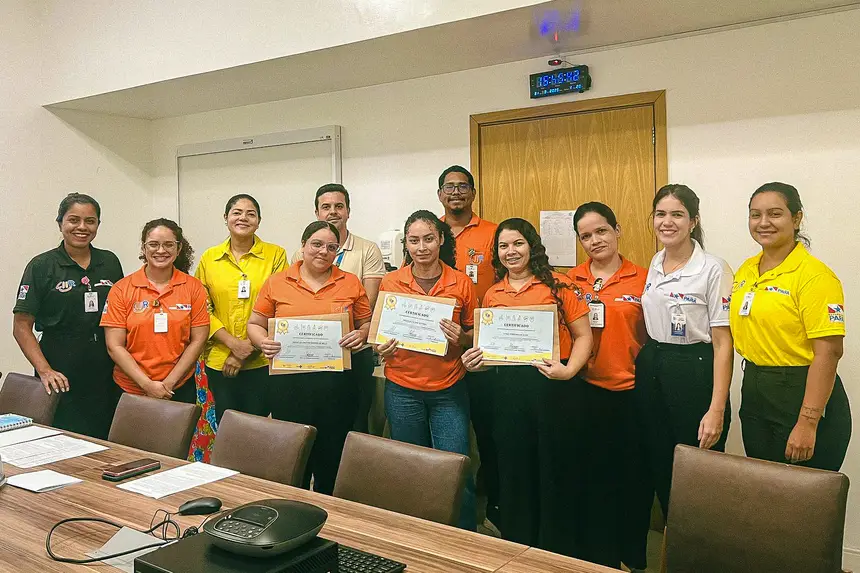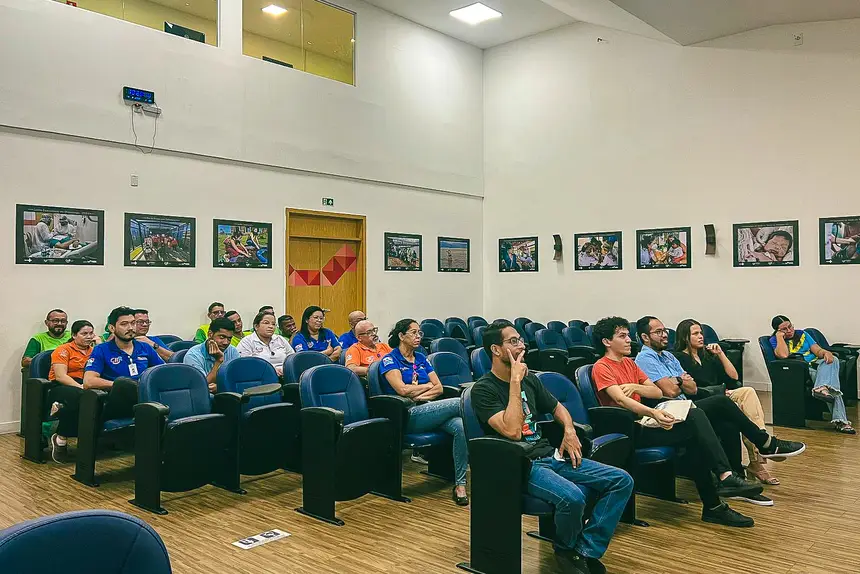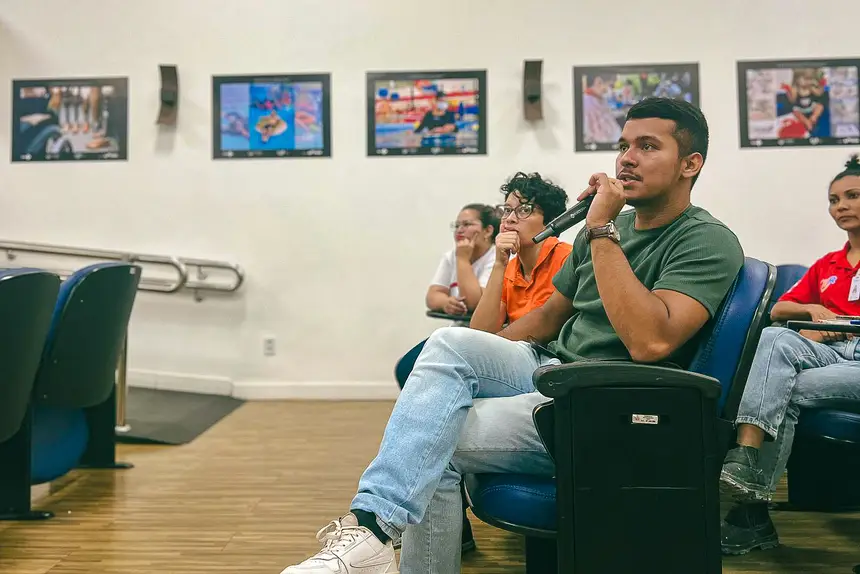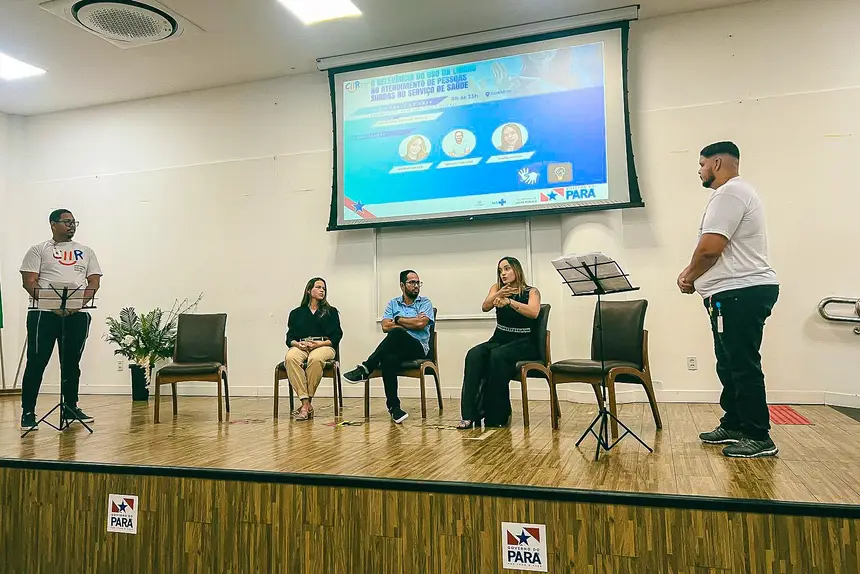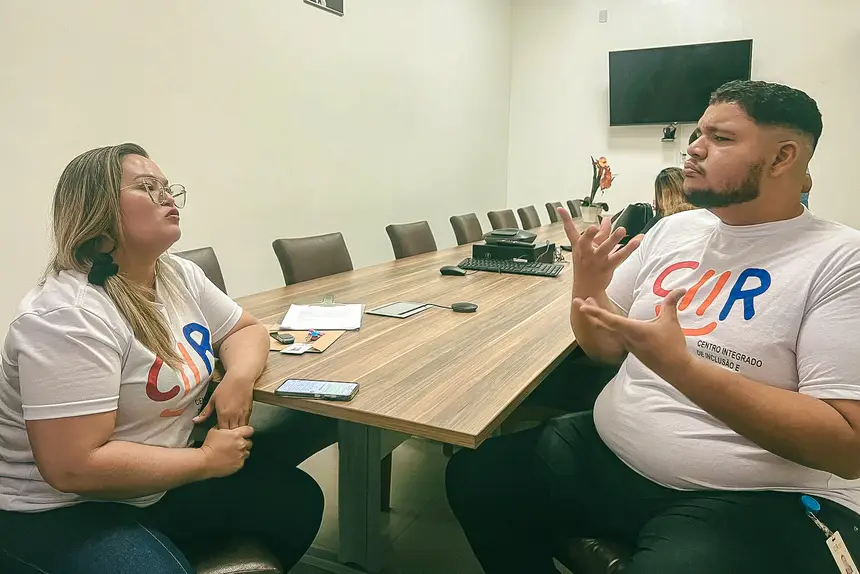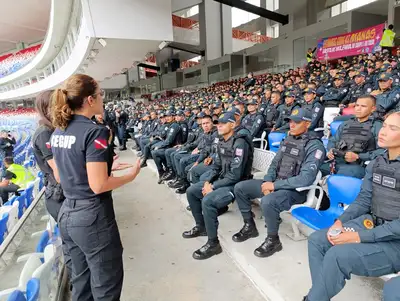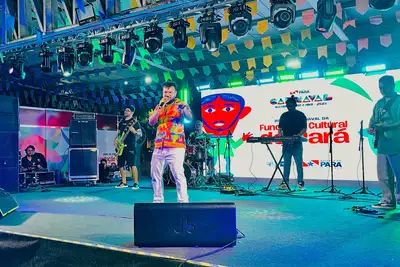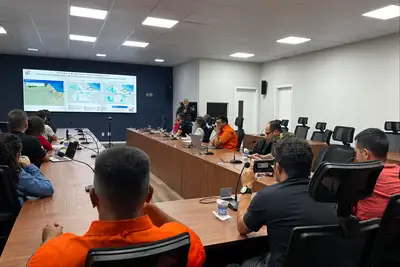CIIR celebrates 23 years of the Libras Law with an inclusive event and leadership from the deaf community
The action marks the National Day of Brazilian Sign Language with a discussion circle, mediation by deaf collaborators, and reports of inclusion experiences in health services
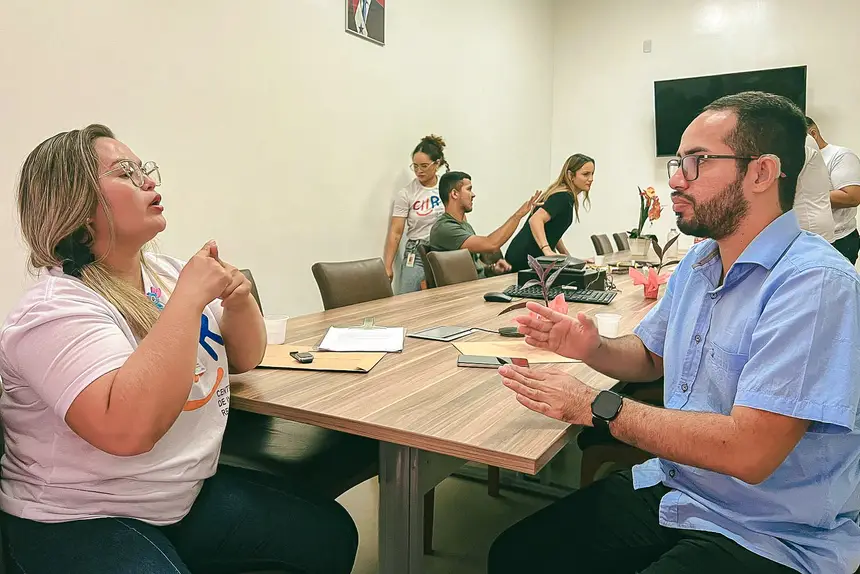
On this Thursday, April 24, the Integrated Center for Inclusion and Rehabilitation (CIIR), through the Humanization Working Group (GTH), held a special program to celebrate the National Day of Brazilian Sign Language (Libras). The date marks 23 years of recognition of Libras as a legal means of communication and expression, through Law No. 10.436/2002.
The event, held in the institution's auditorium, was organized by the Permanent Education Center (NEP), in partnership with the Arts and Culture sector, and brought together users, companions, and professionals in a discussion circle on the theme "The Relevance of Using Libras in the Care of Deaf People in Health Services."
The president of the GTH, Ivana Pimentel, highlighted the importance of the action. "The activity held today, in homage to the National Day of Brazilian Sign Language and the 23 years of recognition of Libras as a legal means of communication and expression, reinforces the commitment of the Humanization Working Group to promote inclusion daily. We work on raising awareness with our collaborators, users, and the general public about the importance of empathy, respect for others, and ensuring the rights of people with disabilities," she emphasized.
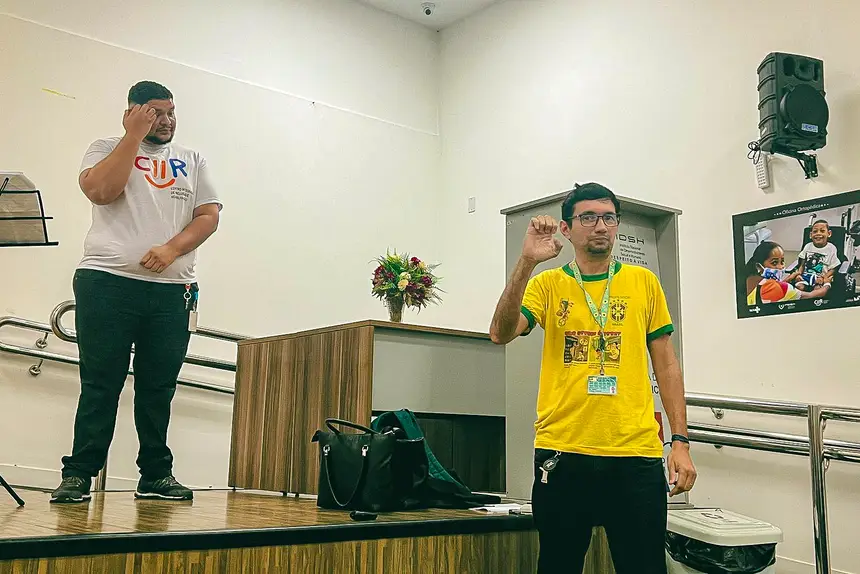
The program was mediated by the deaf collaborators of CIIR, as they self-identify, Luã Tavares and Osvaldo Martins, who brought to light the challenges faced by the deaf community and the importance of accessibility in health services.
Participants – Osvaldo Martins, 34 years old, has been a deaf collaborator at CIIR since 2019. He shared his experience as a mediator of the event, with translation by interpreter Naiandra Matos. He recalled his journey in the institution, which began in a project that culminated in his hiring. Working in the warehouse sector, he highlighted the fundamental role of interpreters for effective communication with colleagues and managers.
"During this period, I also taught basic signs to my colleagues. CIIR has always provided an accessible environment, with interpreters available and encouragement for inclusive communication," he stated.
Regarding his participation in the discussion circle, Osvaldo said he prepared with dedication. He led the chat about the challenges faced by deaf people in the health sector. "It is essential that care with an interpreter is not an exception, but a common practice in all services, as already occurs here at CIIR," he argued.
Another remarkable moment was the testimony of Wirinelton Baia, 31 years old, a user of CIIR since its inauguration in 2018. He highlighted the autonomy he has in the institution thanks to the service of translators and interpreters of Libras. "Outside of here, there is no accessibility. I need the help of my mother, a friend, or someone from my family. Here, I have autonomy because there are interpreters. This makes all the difference," he reported.
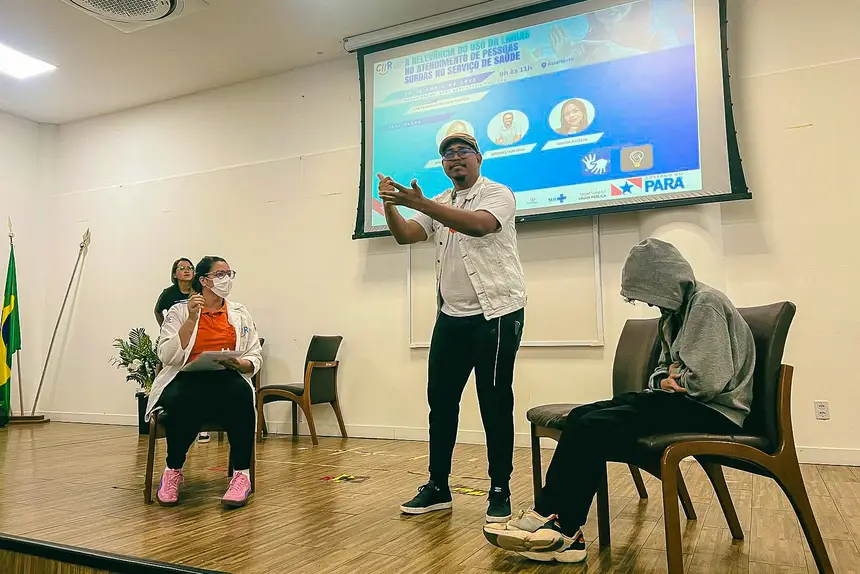
Wirinelton also praised the event and reinforced the importance of visual communication in serving deaf individuals. "It is essential that professionals know how to communicate, that they understand basic signs, and that the structure guides clearly. Even colors and tactile flooring make a difference. And interpreters need to be identifiable, like wearing a black shirt. It is a way of saying: I am here to help," he concluded.
Advances and achievements – Celebrated on April 24, the National Day of Brazilian Sign Language honors the date of the sanction of Law No. 10.436/2002, which officially recognizes Libras as a legal means of communication and expression in Brazil. This legislation represents a historic achievement for the Brazilian deaf community, guaranteeing linguistic rights, visibility, and social inclusion. More than a celebration, the date reinforces the importance of public policies that ensure the use of Libras in various contexts, especially in education and health, as a fundamental instrument of citizenship and equity.
Training in Libras – On March 31, the NEP delivered certificates to 4 collaborators who completed the "Libras in Service" training. The delivery ceremony took place in the CIIR Meeting Room.
To be prepared for the first contact with deaf users, CIIR professionals have in their work schedule the "Libras in Service" program, which has been conducted by the Permanent Education Center (NEP) since 2018, the sector responsible for the institution's training. From January to September 2024, 22 new professionals were considered qualified for the first contact practice in Sign Language.
The content is divided into three modules, applied quarterly. The first covers basic signs, such as the manual alphabet, numbers, greetings, and farewells. The second introduces verbs and question structure to start dialogues. This stage is taught by translators and interpreters Naiandra Matos and Aline Pinheiro. The third stage, focused on practical conversation and grammatical structure of Libras, is conducted by deaf collaborator Luã Tavares and hearing Gessica Pimentel.
Reference – CIIR is a reference in Pará for medium and high complexity assistance to People with Disabilities (PwDs) visual, physical, auditory, and intellectual. Users can access the Center's services through referrals from health units, welcomed by the Regulation Center of each municipality, which in turn forwards to State Regulation. The request will be analyzed according to the user's profile by the State Regulation System (SER).
Service: The Integrated Center for Inclusion and Rehabilitation is an agency of the Government of Pará administered by the National Institute for Social and Human Development (INDSH), in partnership with the State Department of Public Health (Sespa). The Center is located on Arthur Bernardes Highway, No. 1,000, in Belém. More information: (91) 4042-2157/ 58 /59.
Text: Tarcísio Barbosa / Ascom CIIR



